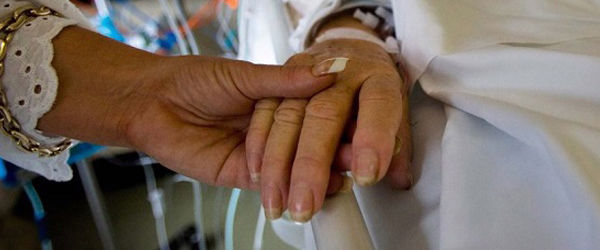In Phoenix, Boston, Los Angeles, Minneapolis, St. Louis and more than 150 other cities Oct. 5, thousands of people carried signs at marches and rallies to call on Congress to pass immigration reform legislation.A rally and concert in Washington Oct. 8 were scheduled to bring the immigration concerns to the capital.In Phoenix Oct. 5, an estimated 4,000 people in red shirts walked from Immaculate Heart of Mary Church to the Sandra Day O'Connor Federal Courthouse during the "National Day of Dignity and Respect." They carried signs reading: "Immigration reform now!" "No more raids" and "Papers for my parents." "Unfortunately, immigration reform has become a political question," said Phoenix Auxiliary Bishop Eduardo A. Nevares, who spoke to marchers outside the church. "For us in the church, it's a religious question. Jesus Christ told us that what we do to the least of our brothers and sisters, we do to him."The procession in Phoenix followed a float bearing images of Our Lady of Guadalupe and the risen Christ. Traditional Mexican dancers, whose performances honor Mary, followed close behind.In New York, marchers gathered at Cadman Plaza and walked across the Brooklyn Bridge, carrying signs urging the U.S. House of Representatives to pass a comprehensive immigration reform bill. The Senate passed such a bill in June, but there's been little interest in the House in taking up that bill. After a bipartisan committee attempting to draft a similar bill in the House fell apart last month, House Democrats introduced their own bill in early October, but there is no indication that the House Republican leadership will move the bill.The New York event featured remarks by several Democratic members of Congress, union leaders, and activists from ethnic and immigrant organizations.In many cities, the rallies and marches began or ended at Catholic churches.In Florida, prayers led off a pair of 150-mile walks from Winter Garden to Tampa and from Clearwater to Tampa, conducted in seven-day treks to draw attention to the need for immigration reform. The kickoff Oct. 7 and the closing were scheduled at Catholic churches.Those events were scheduled to end Oct. 14 in a candlelight prayer vigil led by Bishop Robert N. Lynch of St. Petersburg, Florida.The thousands of marchers in Los Angeles Oct. 5 were in a celebratory mood, as Gov. Jerry Brown two days earlier had signed one bill that allows people who are in the country illegally to get a driver's license and another called the Trust Act, which will prohibit California law enforcement officers who arrest undocumented immigrants for minor offenses from holding them to be transferred to immigration authorities.Speakers in Phoenix summed up issues that were bringing out people around the country to the immigration events.Christians are required to be "the voice for the voiceless," Bishop Nevares said. "We must recognize the dignity of each human person and the dignity of the family. It is our religion that brings us here to stand for the most vulnerable in our society."Silvia Villasana, a parishioner at St. Jerome, said she hopes the march will pressure legislators to do something for "those of us who don't have rights," adding that "these are rights we receive from God." News that other states were approving drivers' licenses for undocumented immigrants gave her hope, she said. Seven states have recently passed laws allowing driver's licenses that do not require proof of legal U.S. residency."There's always hope," said Armando Contreras, former executive director of the National Catholic Council for Hispanic Ministry. "This is not political. This is based on the teachings of the Catholic Church. This is based on Christ. Our hope comes from prayer and action."J.D. Long-Garcia in Phoenix contributed to this story.{gallery width=100 height=100}gallery/2013/1011/immigration/{/gallery}

